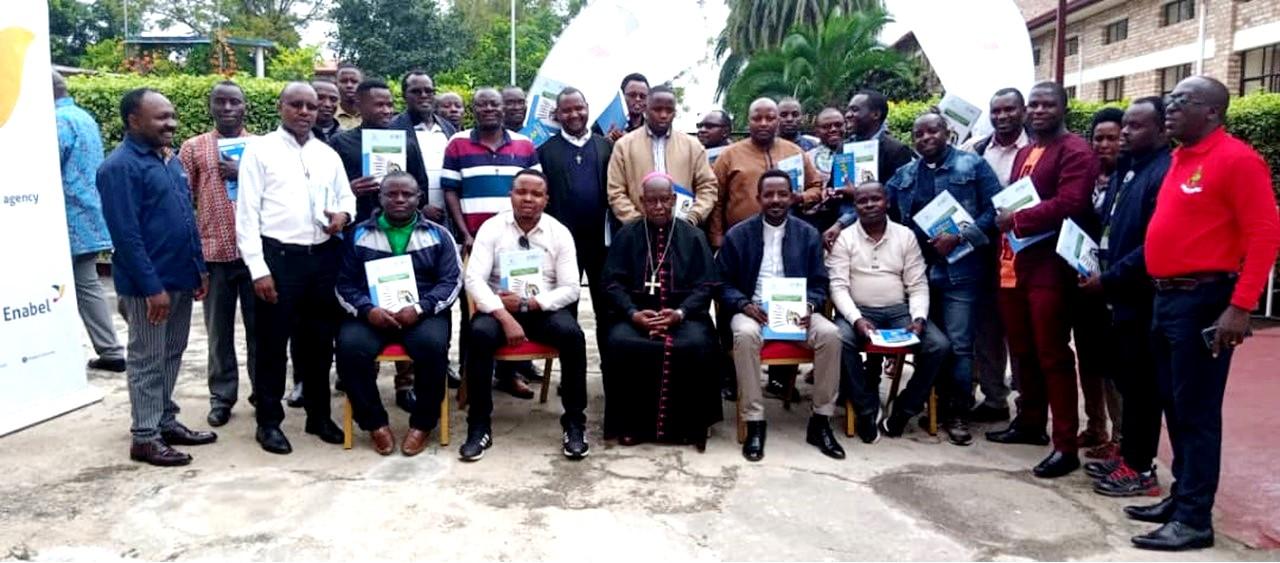Rwanda: Enabel, Rwanda Biomedical Center and the Catholic Church partner to prevent drug abuse among young people
Enabel/Barame project in collaboration with the Mental
Health Division of Rwanda Biomedical Center (RBC) organized a five-day
workshop, from 20-24 June 2022, for Catholic Church Priests in charge of youth (chaplains)
from the seven districts of intervention.
The training underway in Muhanga District,
which brought together 60 priests from 53 catholic parishes and dioceses, was officially
launched by the President of Episcopal Commission for Youth, Bishop Selvirien
Nzakamwita. It aims at improving their knowledge in drug abuse and
substance use prevention including the targeted communication skills for a
positive behavior change.
Participants will also acquire skills in individual
counselling to be able to support the young people using or at risk of abusing
the drug including alcohol.
At the same time, the developed communication
materials including peer support group tool kit will be distributed to the
chaplains for its use while communicating with adolescent about the prevention
and the reintegration of drug users.
At the end of this workshop, these priests are
expected to closely work with Youth representatives at parish level and use
their existing communication channels up to the community level through
ecclesial basic communities to support deployed efforts in fighting the drug
abuse, support positively the users towards a free drug young generation.
The workshop
will also induce the development of action plan to enhance communication
towards behavioral change of young people using the catholic church structures from
national to the community level.
This workshop is aligned with the principle of
multisectoral approach to fight against drug and substance use and in relation
to the recent findings of a study initiated by Barame/Enabel in 2020 on
substance use in Rwanda which revealed that the in past 30-day prevalence among
youth was 34% for alcohol, 8.5% for tobacco smoking, 2.7% for cannabis, 0.2%
for glue and 0.1% for drugs such as diazepam. The mean age of onset of alcohol,
cannabis and heroine are 13.1, 16.8 and 18.5 respectively.
It is expected to provide knowledge and basic
skills on how to organize awareness sessions, detect and support youth with
drug abuse issues and ensure early referrals for adequate management.
Laatste nieuws van dit project
Geen nieuws

